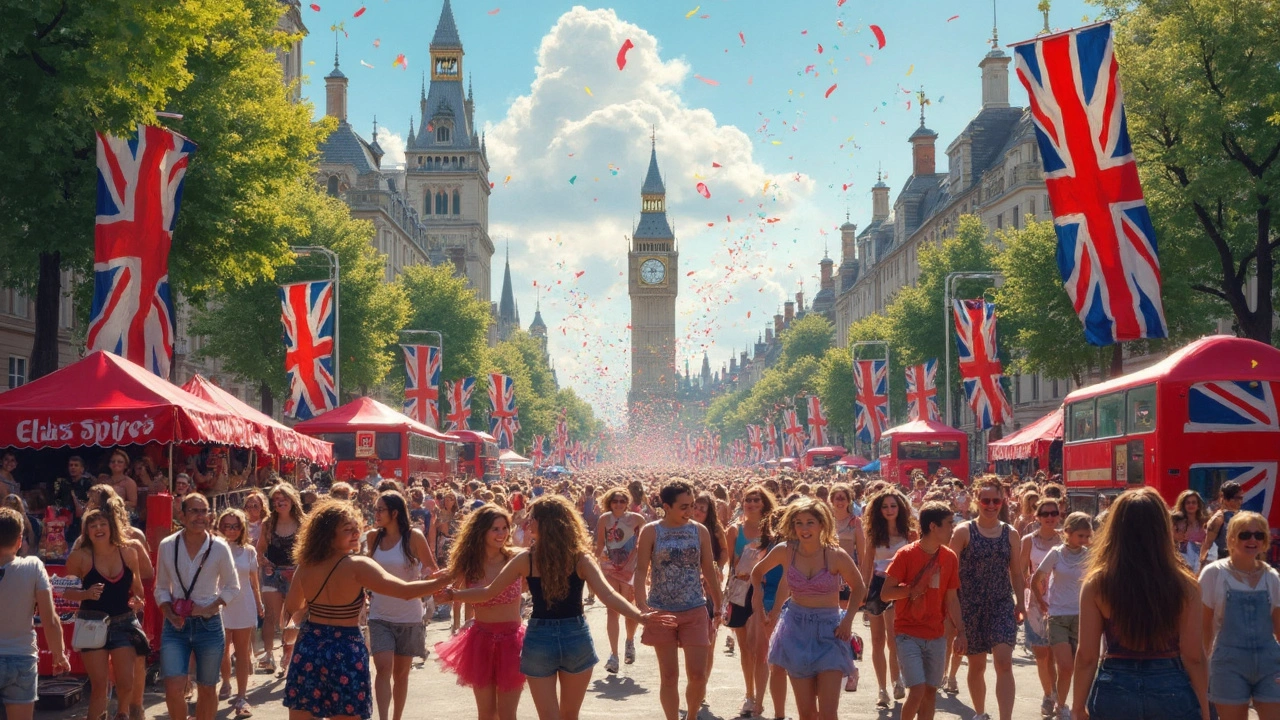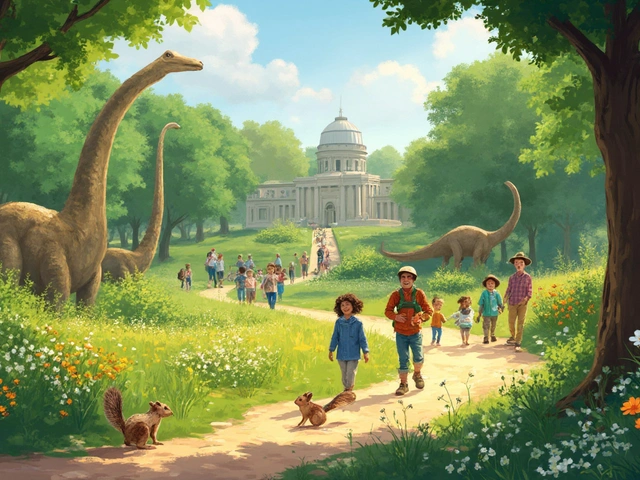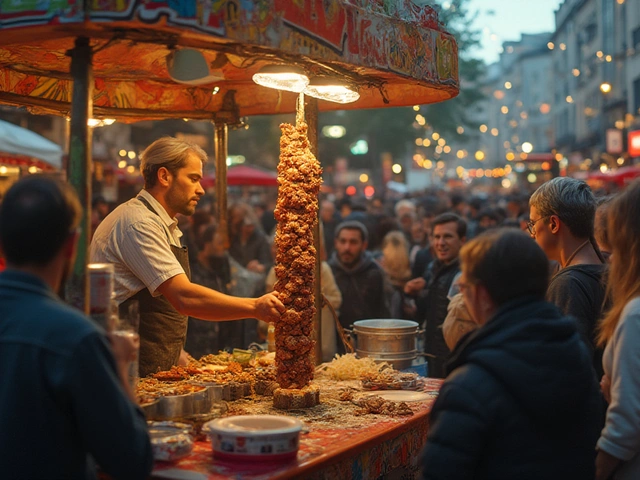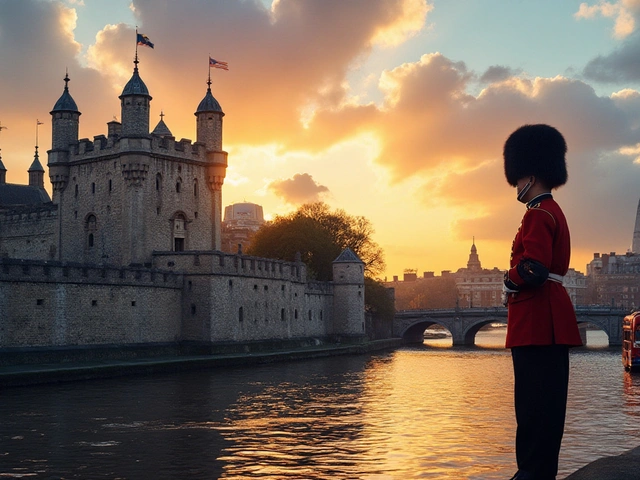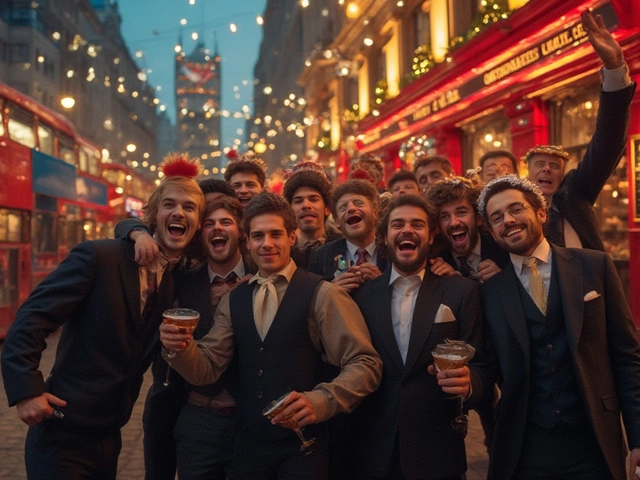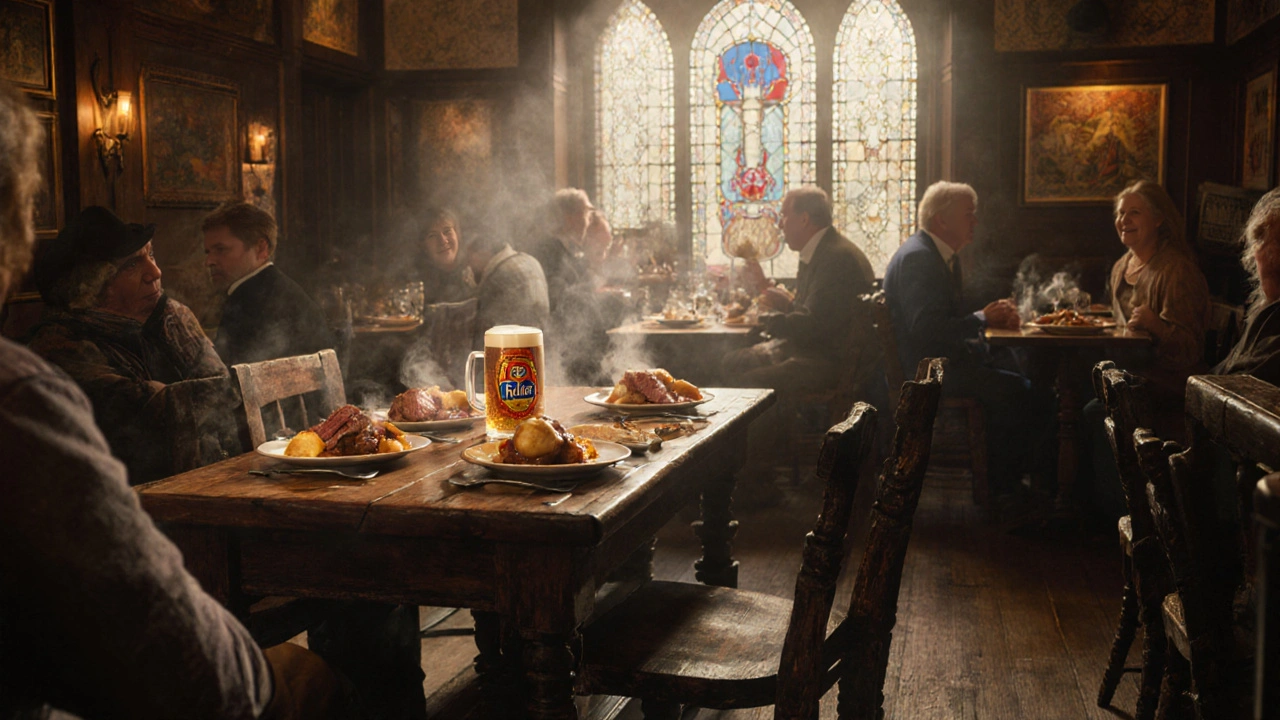
London isn’t just a city of red buses and black cabs-it’s a living archive of rituals, rhythms, and quiet moments that define what it means to be British today. If you’ve lived here for years or just landed at Heathrow, the real culture isn’t found in the postcard sights alone. It’s in the unspoken rules, the seasonal rhythms, and the places where locals go when no one’s watching. Here are the top 10 cultural experiences for the curious traveler in London-ones that don’t cost a fortune, don’t require a queue, and reveal the soul of the city.
Attend a Sunday roast in a proper London pub
Forget fancy restaurants. The true British Sunday roast is a ritual, not a meal. Head to The Dove in Hammersmith, The Churchill Arms in Kensington, or The George in Vauxhall. You’ll find roast beef with Yorkshire pudding, crispy roast potatoes, and gravy that’s been simmering since morning. Locals arrive between 12 and 2 p.m., often with families in tow. The pub becomes a living room with wooden floors and mismatched chairs. Order a pint of Fuller’s London Pride, and don’t be surprised if the barman asks if you’re from around here. That’s not small talk-it’s an invitation.
Walk the South Bank at sunrise
Most tourists hit the South Bank at midday, crammed between the London Eye and the Tate Modern. But the real magic happens before 7 a.m., when the fog still clings to the Thames and the only people around are joggers, dog walkers, and street cleaners. Stand near the Hayward Gallery and watch the sun rise over the Shard. Listen to the sound of the river lapping against the concrete. You’ll see elderly men feeding pigeons near the National Theatre, and maybe a busker playing a saxophone with a battered case open at their feet. This is London at its most peaceful-and most real.
Visit a local market on a non-weekend day
Camden Market is packed. Borough Market is crowded. But if you go to Spitalfields Market on a Tuesday afternoon, you’ll find something quieter: hand-stitched leather bags from East London artisans, freshly baked sourdough from a Polish baker who’s been here since 2012, and a stall selling mulled wine from a family that’s run it since 1998. These aren’t tourist traps-they’re small businesses that survived rent hikes and pandemic closures because they’re rooted in community. Talk to the vendors. Ask where they’re from. Most will tell you.
Join a library talk or local history group
London’s public libraries are cultural hubs most visitors never know exist. The Islington Central Library hosts monthly talks on Victorian street life. The Peckham Library runs oral history workshops where residents share stories of migration from the Caribbean and South Asia. These aren’t academic lectures-they’re intimate gatherings with tea and biscuits. You’ll hear how a woman from Jamaica remembers the first Windrush arrivals, or how a man from Bangladesh learned to make chapati in a flat in Brixton. These are the stories that don’t make headlines, but hold the city together.
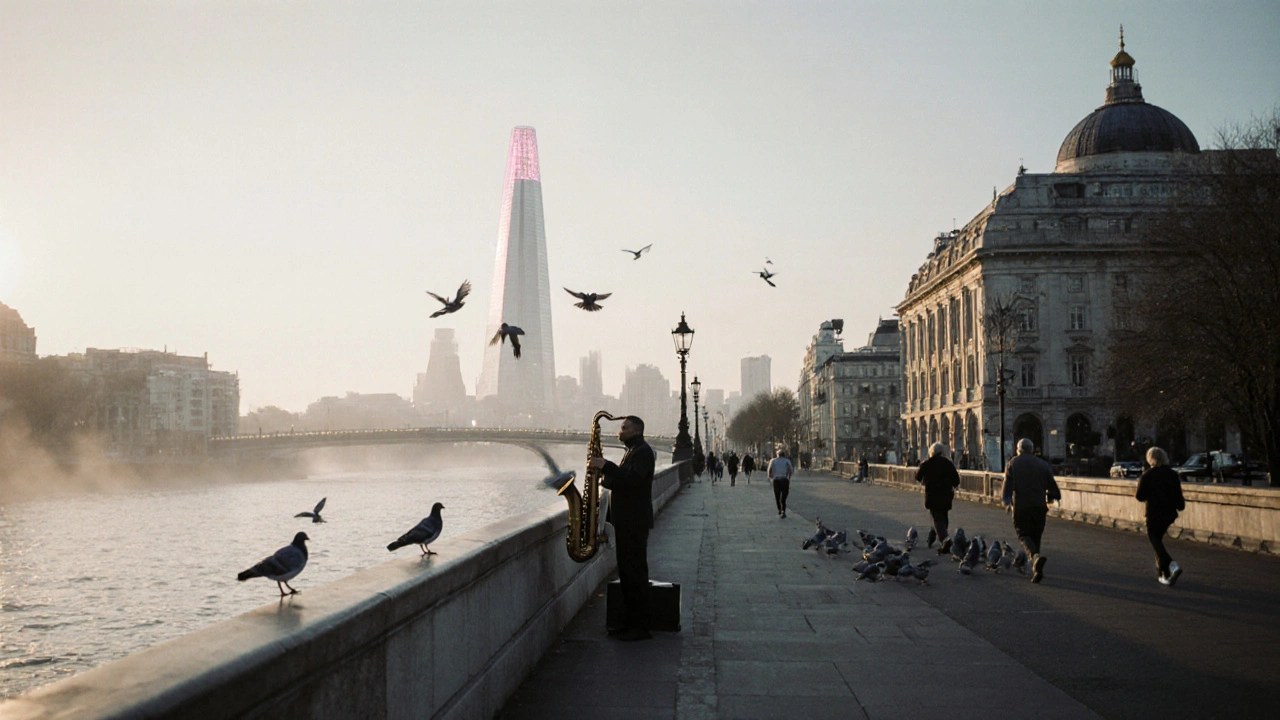
Watch a football match at a non-Premier League club
You don’t need to shell out £100 for a Spurs or Chelsea ticket. Head to Wimbledon FC at Plough Lane, or Charlton Athletic at The Valley. The atmosphere is raw, loud, and real. Fans sing songs passed down for decades. The pitch is uneven. The stewards know everyone’s name. You’ll see grandfathers in faded scarves, teenagers with homemade banners, and women holding babies while chanting. It’s not about winning. It’s about belonging. And if you show up with a pint in hand and a smile, someone will buy you one.
Attend a Notting Hill Carnival rehearsal
Everyone knows Notting Hill Carnival in August. But few know about the rehearsals in July-when the steel drums, dancers, and masquerade bands test their routines in quiet parks like Holland Park or Clapham Common. The energy is electric, but the crowds are thin. You can stand right up front, talk to the drummers between sets, and even try on a feathered headdress. It’s not just a festival-it’s a living tradition rooted in Caribbean resistance and joy. Bring a light jacket. The night air gets cool, and the music doesn’t stop until dawn.
Take the last train home with locals
London’s Night Tube runs Friday and Saturday nights. But the real cultural moment happens on the last train home-around 1:15 a.m. on a Thursday, when the city is quiet and the carriage is full of people who’ve just finished their shifts: nurses from St Thomas’ Hospital, bar staff from Shoreditch, delivery drivers from Croydon. No one talks much. But you’ll notice the way a woman hums along to her earphones, or how a man carefully folds his uniform before sitting down. There’s dignity in the silence. And if you’re lucky, someone will offer you a sweet from their tin.
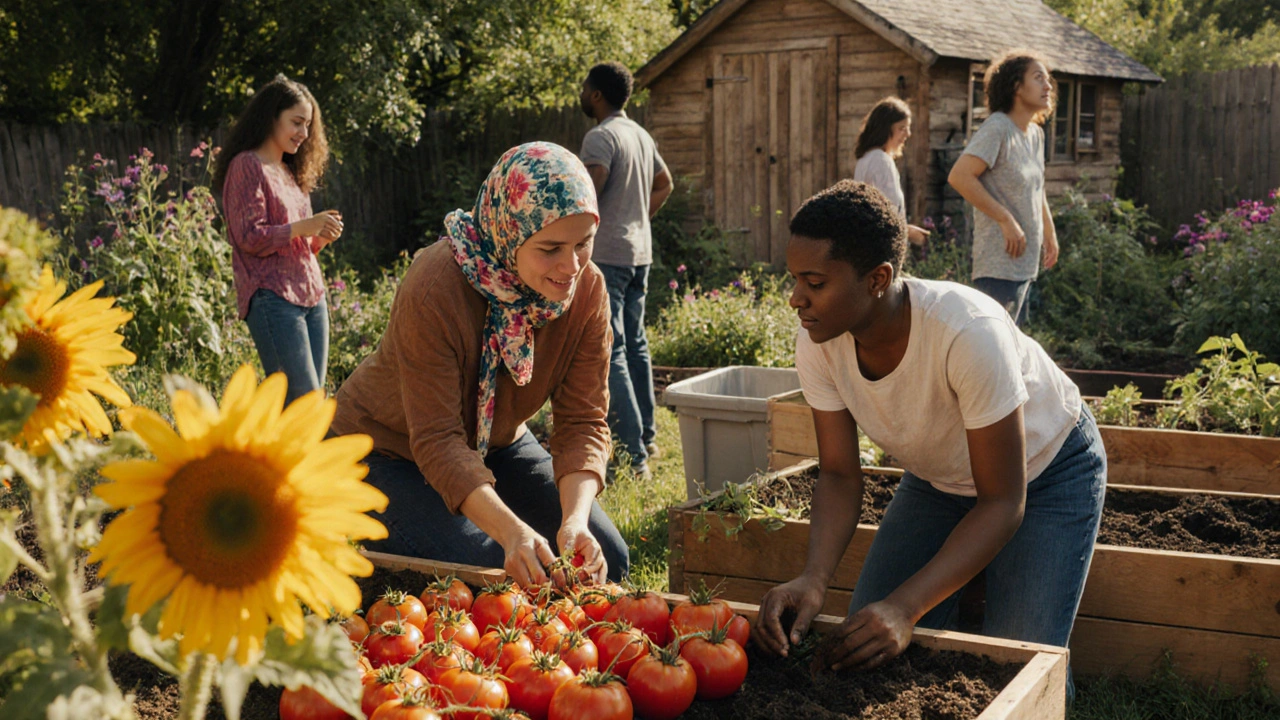
Visit a church service on a weekday
St. Martin-in-the-Fields in Trafalgar Square isn’t just a tourist stop-it’s a working church with daily services at 1 p.m. The music is performed by the church choir, and the congregation includes students, refugees, and retirees. You’ll hear prayers in English, Swahili, and Polish. After the service, there’s free tea and cake in the crypt. No one asks where you’re from. No one expects you to believe anything. You’re just welcome. It’s one of the few places in London where silence is respected, not filled with noise.
Go to a bookshop reading with a local author
London’s independent bookshops are cultural sanctuaries. At Daunt Books in Marylebone, or Bookbarn International in East Dulwich, you’ll find readings by poets, journalists, and memoirists who live just around the corner. These aren’t celebrity events. The author might be a retired teacher who wrote about growing up in Deptford, or a Somali refugee who published her first novel at 62. The crowd is small-maybe 15 people. But the connection is deep. You’ll leave with a signed copy, and maybe a new friend.
Join a community garden in a London borough
There are over 2,000 community gardens across London. Find one near you-The Greening of Peckham, Stoke Newington Common Garden, or Hackney City Farm. Show up on a Saturday morning with gloves and a water bottle. You’ll be handed a patch of soil and told to plant whatever you like. People grow tomatoes, mint, and even sunflowers. The conversations are about compost, not politics. You’ll learn how to prune a rose from a woman who moved here from Jamaica in 1972. Or how to grow kale in a window box from a Ukrainian refugee. These gardens aren’t pretty backdrops-they’re lifelines.
London’s culture isn’t in its monuments. It’s in its people-quiet, stubborn, kind, and deeply connected to place. These experiences don’t need tickets. They don’t need Instagram filters. They just need you to show up, listen, and stay a little longer than you planned.
Comments (10)
- Bing Lu
- October 30, 2025 AT 19:18 PM
This is all fake. The government plants these 'authentic' experiences to distract us from the real London-controlled by the Bank of England and the Queen's secret AI. They want you to think it's about roasts and gardens. Nah. It's about surveillance through tea and scones. 🤫
- gaia quinn
- November 1, 2025 AT 00:00 AM
Oh wow, another 'quirky local' checklist for rich Americans who think 'going to a pub' counts as cultural immersion. Did you also take a selfie with a cardboard cutout of the Queen? The real culture is the rent crisis, the 14-hour workdays, and the fact that 'free tea in the crypt' is just PR for a church that won't forgive student debt. You're not connecting-you're performative.
- BETHI REDDY
- November 2, 2025 AT 01:23 AM
While the author’s sentiment is poetically rendered, it suffers from a fundamental epistemological flaw: the romanticization of mundane labor as 'authentic culture.' One cannot equate the act of feeding pigeons with the ontological weight of historical continuity. The Sunday roast is not a ritual-it is a bourgeois relic, commodified by gastro-tourism. One must transcend the superficial to grasp the dialectic of urban alienation in late-stage London.
- Michaela Bublitz
- November 2, 2025 AT 18:38 PM
I love this so much. I visited London last year and went to Spitalfields on a Tuesday-totally forgot how quiet it was. The Polish baker gave me a free loaf just because I asked how he learned to make sourdough. I cried a little. We need more of this. No filters, no crowds, just people. ❤️
- mariepierre beaulieu
- November 3, 2025 AT 12:12 PM
The last train thing got me. I took the 1:15am train from Waterloo once and sat next to this nurse who was humming 'Hallelujah' under her breath. She didn't say a word, but when she got off, she smiled at me like we'd known each other for years. That's the magic. 🌙💛
- Frank PIOBLI
- November 4, 2025 AT 14:14 PM
They say 'show up and listen' like it's that easy. What about the people who show up and get ignored? Or worse-accused of being a tourist? I went to a church service at St. Martin’s. Sat there for 45 minutes. No one offered tea. No one even looked at me. Turns out 'welcome' only applies if you look like you belong.
- OBINNA UBOCHI
- November 4, 2025 AT 21:04 PM
You wrote 'roast beef with Yorkshire pudding' but forgot the Oxford comma. Also, 'mulled wine from a family that’s run it since 1998'-that’s not correct grammar. Should be 'a family that has run it.' And why is 'London Pride' capitalized? It’s a beer, not a national anthem. Fix your punctuation before you write about culture.
- Dan Sprague
- November 6, 2025 AT 19:10 PM
so i went to the greenin of peckham last sat and planted some basil. the lady next to me was from jamaica and told me her granddad brought the first seeds over in 1968. we didn’t talk politics. we just talked dirt. best hour of my life. thx for the rec 🌱
- Andrew Chen
- November 7, 2025 AT 03:48 AM
The quiet moments matter most. Not the spectacle. Not the hashtags. Just presence.
- Farrah Kennedy
- November 9, 2025 AT 03:10 AM
You call it culture. I call it resistance. The pub that survives rent hikes. The librarian who archives immigrant stories. The nurse humming on the last train. This isn’t tourism. It’s civil disobedience with a pint in hand. The system wants you distracted. These moments? They’re the opposite of passive. They’re revolutionary. And yes, I cried at the community garden too. Sue me.

